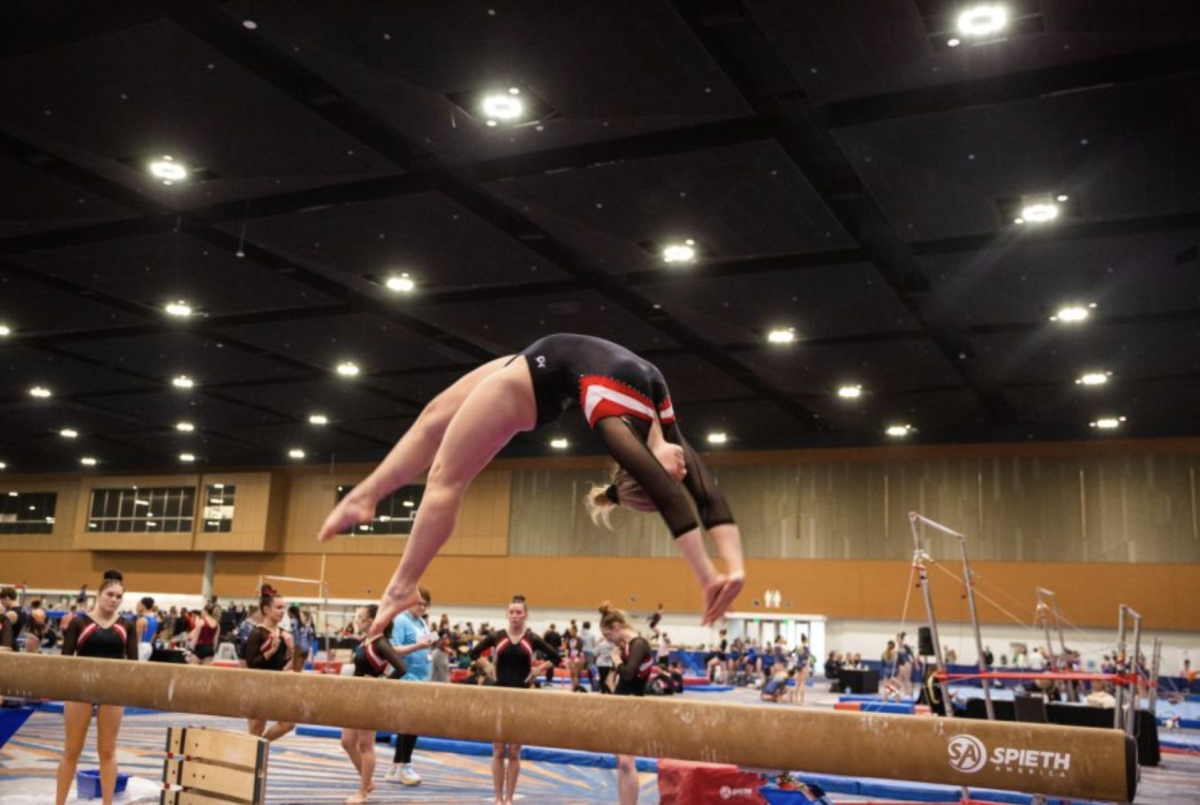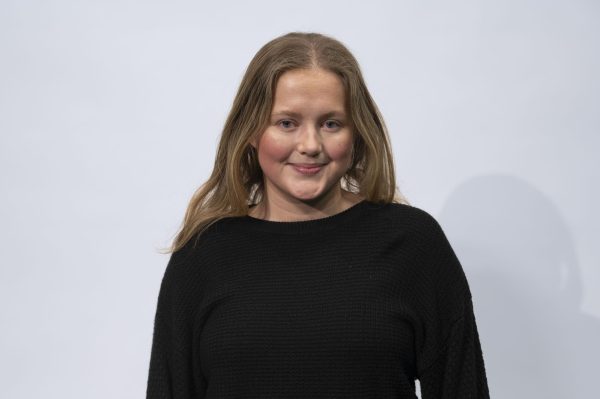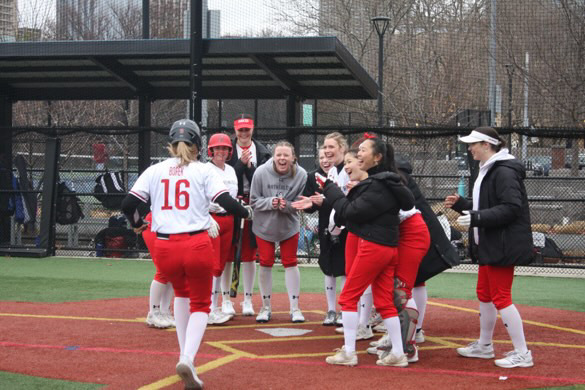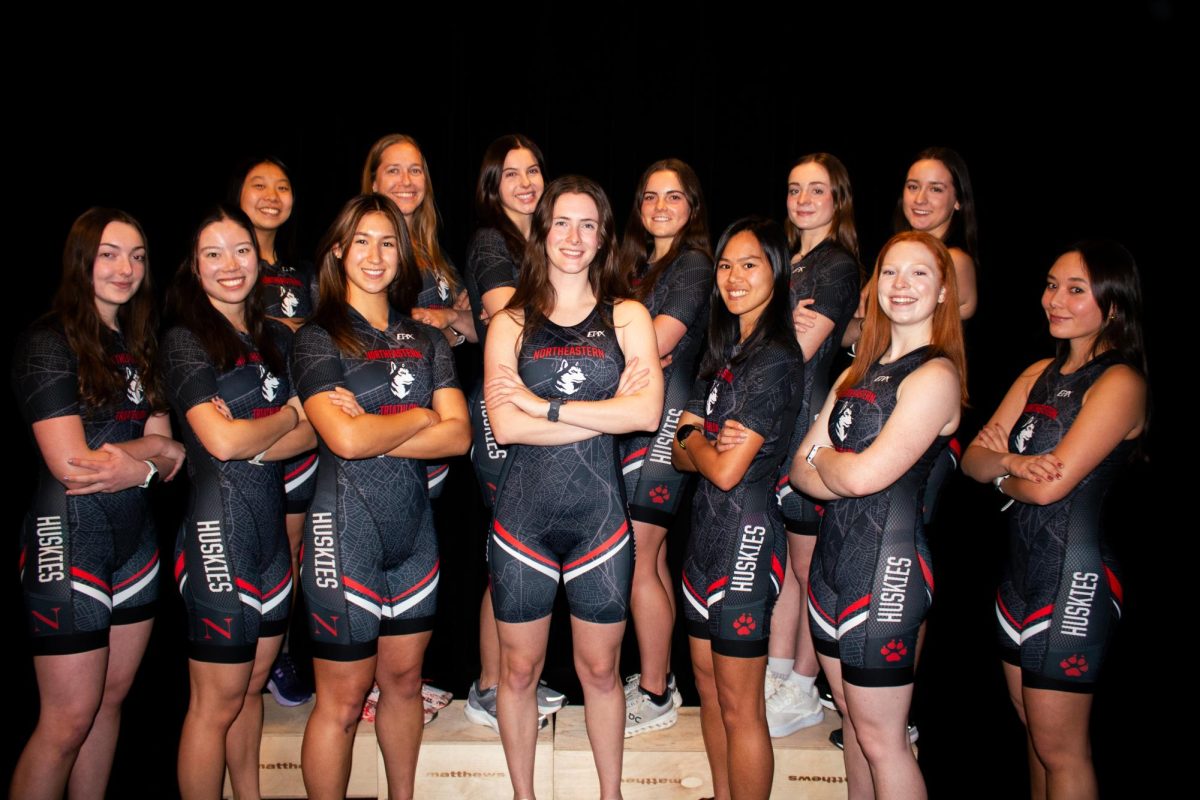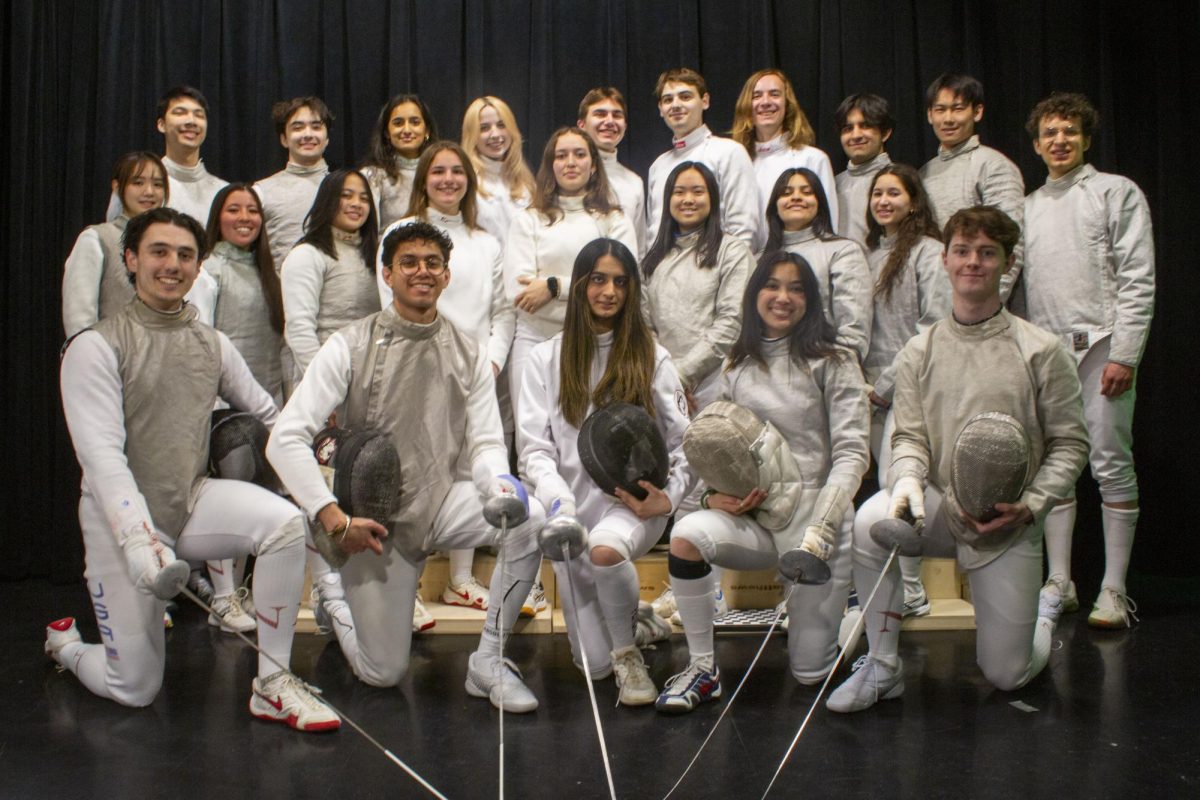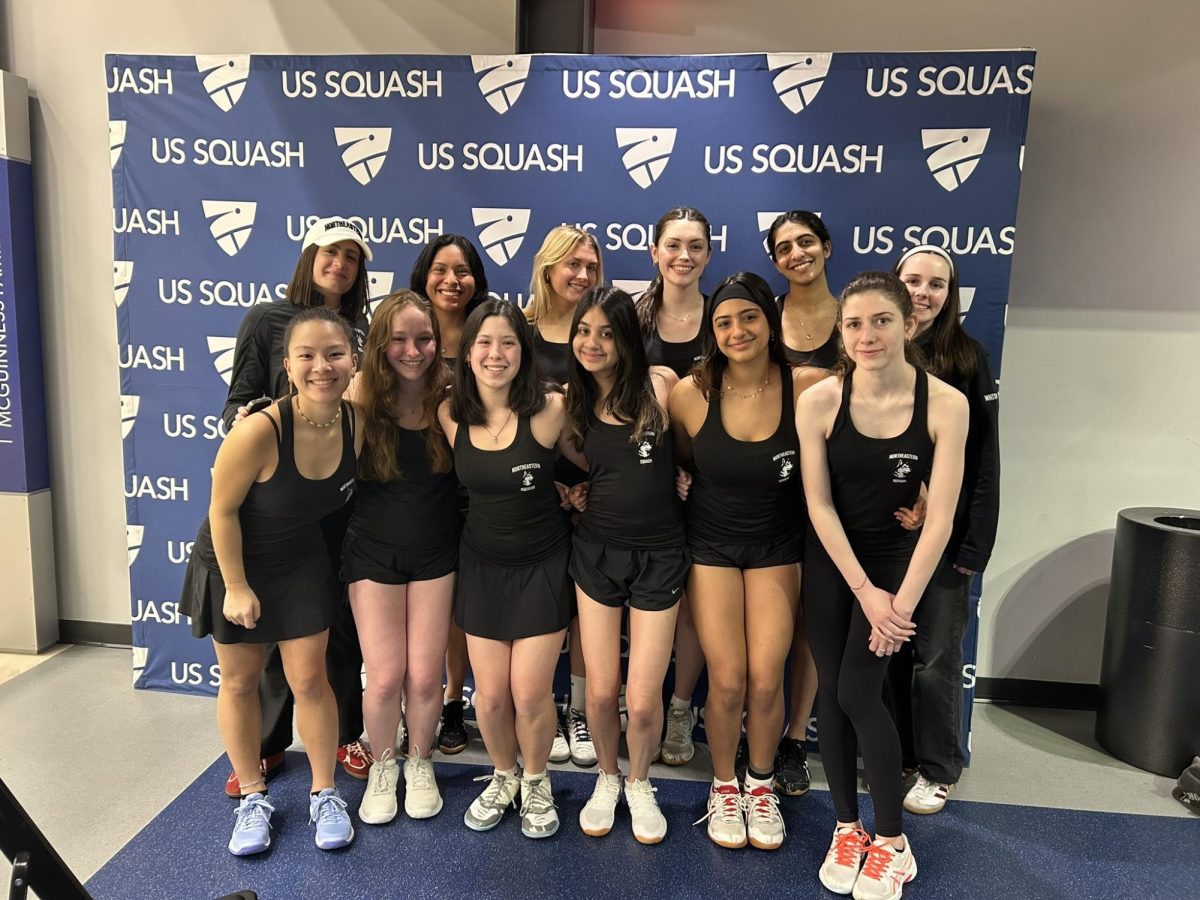Following a historic regionals win, Northeastern’s club gymnastics team hopes to continue its momentum as it heads to Albuquerque, New Mexico for the National Association of Intercollegiate Gymnastics Clubs Nationals from April 10 to 13. The team looks to further its success after an impressive seventh place finish out of 39 teams at last year’s nationals.
Getting to nationals isn’t an easy feat, and requires a lot of work to mentally and physically prepare the team for the meet.
“We spend all year preparing for nationals,” said junior meet manager Rachel Spezzaferro. “Everyone who’s competing at nationals has been competing in their event the whole season.”
In preparation for nationals, junior president Hailey Koppelman made sure everything ran smoothly within the club, organizing the travel itinerary and managing the relationships and communication between the team and other organizations.
“I always want to make sure that everyone is satisfied before they compete and aren’t nervous to compete, but also feel prepared,” Koppelman, a health sciences major, said. “If you fall, you fall. We’re going to pick you up and tell you to do great next time.”
Spezzaferro’s largest responsibility was planning the second annual Beantown Showdown, Northeastern’s home invitational. This year, the Huskies hosted Boston University, the University of Connecticut and the University of Massachusetts, Amherst. The Huskies were victorious at this year’s competition and won all four of their meets this season.
Fifth-year Elena Wollman organized a pre-nationals team bonding event to help the team connect with each other. Bonding is important to the team because it makes it stronger, closer and more prepared for the coming seasons, Koppelman said.
“I think the special thing about this year is everyone’s really close,” Koppelman said. “I’ve heard from a lot of people that they’re closer than normal.”
The team typically practices twice a week for two hours at a time and members are only required to make 30% of the practices in order to compete. Prior to nationals, the team also practices in a different gym that has a foam pit, a benefit that its usual training spot does not have.
“We transition in practice from just doing skills and conditioning to trying to get through full routines,” Wollman said.
Physical preparation is not the only work that goes into nationals. There are a lot of behind-the-scenes efforts to get the team to Albuquerque.
Flights from Boston to Albuquerque cost nearly $700 per ticket. The team is given $3,000 from the club sports office, which only covers half of the flight and hotel expenses, Koppelman said.
To help make up the difference, the team recently volunteered for an event at Gillette Stadium and received $100 per person that registered to help out. This external fundraising helps the team make money that it might not at on-campus events, in which the team makes “negative money,” Koppelman said.
The majority of the team’s fundraising comes from teaming up with local restaurants and cafes. The team gets a cut of the money made by the restaurant when customers come in and mention the team. In the past, they have collaborated with Cold Stone Creamery, Drive Coffee and Blaze Pizza.
This year, participation rules have changed for both the national and regional meets, with only eight people permitted to compete in each event compared to an unlimited number in past years. This posed a unique challenge for the team because the participants on some events were cut nearly in half, making it difficult to decide who no longer gets to compete on an event they have been competing in all season.
The team hopes that its regional victory and nationals participation helps it gain more recognition and funding.
“We only have 25 to 30 alumni, and they’re all young, just out of college and med school,” Koppelman said. (The club was founded eight years ago, in 2016.) Other clubs have significantly higher numbers of members and alumni, which makes it easier for them to fundraise, Koppelman said.
An integral part of the team’s success at competitions and with funding has come from head coach Peter Gobiel.
“He is just there because he loves it,” Wollman said. “He really cares about us. He is always willing to help out.”
The majority of Gobiel’s work within the gym is to spot the team and motivate the members, but he also contributes to much of their funding.
“He is, if not our biggest donor, one of our biggest donors,” said Spezzaferro, a computer science and mathematics combined major.
Gobiel also coaches gymnasts at middle and high schools, and every St. Patrick’s Day weekend, he hosts a meet at which the Northeastern team fundraises. It is one of the team’s biggest fundraising events, and raised $2,000 this year.
Most club gymnastics teams do not even have a coach, which makes Gobiel and the Huskies stand out. Gobiel does not get paid a lot to coach the team, Wollman said. Coaches are paid hourly, but may not work more than 20 hours a week.
“It says a lot about [Gobiel] and what our team means to him,” Spezzaferro said.
Nationals is the culmination of the team’s season. All the team’s hard work in planning and training comes down to this.
“It’s stressful, but you feel so proud when nationals happen and we do so well and we’re like, ‘That’s because of us,’” Koppelman said.



